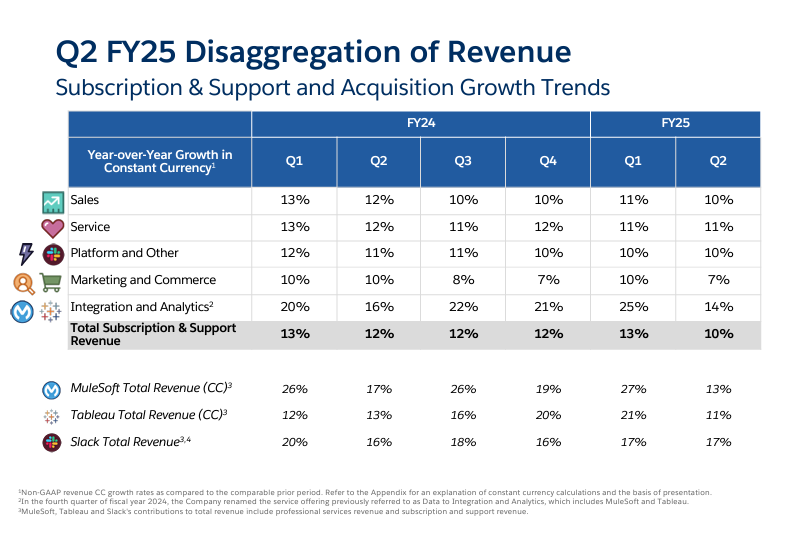Salesforce is known for growing revenue through multi-cloud deals and is still damn good at it since 80% of new business in the second quarter was due to the cross-sell. But it's not hard to see a consumption-based model in the future based on transactions, workflows and Agentforce interactions.
Read between the lines of Salesforce CEO Marc Benioff's second quarter comments and it becomes clear that the company is looking at more of a platform strategy enabled by Agentforce. Dreamforce will be the big debut for Agentforce, which was outlined by Constellation Research analyst Martin Schneider recently.
If successful, Agentforce will move Salesforce's model from one of annoying cross-sells to one based on consumption. Salesforce's plans likely highlight a pivot for an enterprise software industry facing disruption.
- Disruption is coming for enterprise software
- BT150 zeitgeist: Dear SaaS vendors: Your customers are pissed
- Enterprise software vendors shift genAI narrative: 'GenAI is just software'
- GenAI may be the new UI for enterprise software
- GenAI boom eludes enterprise software...for now
Let's start with Benioff's money quote during the earnings conference call (emphasis mine):
"When you think about apps and you think about humans, because humans use apps, not in all cases. So, for example, the Data Cloud is a consumption product. The Commerce Cloud is a consumption product. Of course, the e-mail product, Marketing Cloud is a consumption product. Heroku is a consumption product. So of course, we've had non-human consumption-based products for quite a long time at Salesforce. But in this idea of agents, when -- I'll just give you my own personal goals. So, I'm not giving any guidance here.
My goal is that by the end of fiscal year '26 that we will have a billion agents. Already in just looking at the number of consumers identified just in the trials that we have going on, we have like 100 million identified or more. Okay. call it, 200 million. But the funny thing is, of course, it's only one agent. But let's just think it's like a manifestation of all these agents talking to all these consumers. And then when we look at pricing, it will be on a consumption basis. And when we think about that, we think about saying to our customers, and we have, it's about $2 per conversation."
Benioff added that agents represent a high margin opportunity. "It's probably a per conversational charge as a good way to look at it or we're selling additional consumption credits like we do with our Data Cloud," he said.
There are multiple themes to ponder here.
- Can Benioff pivot to a consumption model where it sells its individual apps, but with the platform play they became an ensemble cast in your enterprise? "You have all your agents working, your salespeople are working, your service people are working. You're sending out these e-mails. You're talking commerce on your website and then you hit a button and boom, Tableau visualizes all of it for you and it's all one integrated platform. So that's really our vision of where it's going," said Benioff, who did note that enterprises don't have to buy the entire platform, but it helps accuracy if they do.
- Will Salesforce avoid a hard landing? It appears that Salesforce is moving more to a hybrid SaaS meets consumption model in the near term. Usually, the pivot to a consumption model takes 18 months.
- Dreamforce will be the audition for Agentforce and Salesforce has to convince customers to take the leap. ServiceNow may be the biggest competitor to this platform-consumption based pivot for Salesforce.
- Salesforce will need to work against the DIY crowd when it comes to AI. Benioff said that he has been disappointed with enterprises trying to build their own AI infrastructure because they are wasting money by not betting on a platform vendor (like Salesforce). I found this initial reference to be a bit chippy, but then noticed the context. Klarna said it was ripping out Salesforce and Workday and using AI to replace them. This news item points to that enterprise software disruption theme I've been highlighting of late. Are all SaaS vendors merely systems of record that can be abstracted away?
It's unclear whether Salesforce can really become more than its disaggregated product lines, but it'll be fun to watch.



